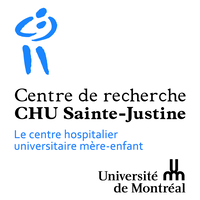
03 Apr Msc / PhD – Computational Modeling of Social Cognition
Research laboratory presentation
SOND Lab – Social[Interaction V Cognition V Brain] & Neuro[Development V Diversity]
The lab is focused on understanding the human diversity in social interaction across development, using the following approaches:
- Neurocognition of social interaction. Using behaviour and neuroimaging data collected in children and adolescents in the clinics or via databases, we want to understand the prossesses involved in social interaction in development through computational modeling, in relationship with genetics. (col. S. Jacquemont M.D., CHU Ste-Justine).
- Sophistication & Flexibility in cognitive strategies during reciprocal social interaction – computational approach (col. J. Daunizeau Ph.D., INSERM). The approach is described here.
- Impact of attentional state on social interaction – electrophysiology (partnership with Neuroservo.inc).
- Neurofunctional signature of social interaction (col. Ph. Pinel Ph.D., INSERM)
- Neurodevelopment, Diversity & inclusion aims at improving care practice in neurodevelopment by giving a central role to persons and their caregivers:
- We develop a guide to improve communication at the time of the diagnostic of autism (CIUSSSNMTL, col. A. Valderrama M.D., école de Santé Publique de Montréal).
- Co-construction with autistic persons in research projects related to housing aimed at autistic persons (col. V. Lassale Ph.D., faculté d’architecture, Fondation Véro& Louis) or to define and measure quality of life in autistic persons (col. I. Courcy Ph.D., UQAM).
SOND lab is led by Dr Baudouin Forgeot d’Arc, MD. PhD. clinician/Professor at the University of Montreal’s Department of Psychiatry, Pedo-psychiatrist and Researcher at Sainte-Justine University Hospital Research Center.
Research project description
Under the supervision of the Principal Investigator, the candidate will perform computational modeling of social cognition tests based on reinforcement learning. Specifically, the candidate will be responsible for:
- Data transfer from the French Site;
- Database management;
- Development of operational pipelines for computational modeling of social cognitiontests based on reinforcement learning in MATLAB and/or R.
- Extraction of Sophistication & Flexibility measures using the approach is described here.
- Visualization of the results;
- Communications with other collaborators/students on the results of the RL.
Required training and profile
- Undergraduate or higher degree in, neuroscience, computer science, statistics, public health or other relevant discipline 1 or more internship experience of quantitative modelling;
- Project management training is an asset;
- Experience in basic concepts of computational modeling using reinforcement learning;
- Experience with coding in R and/or MATLAB;
- Experience understanding scientific research protocols;
- Understanding of the English/French language;
- Communication and organization skills;
- Previous experience in research in mental health, psychiatry, pediatrics, neurosciences and biomedical sciences would be an asset.
Specific skills
- Reinforcement learning model of cognitive tasks using R and/or MATLAB;
- Ability to manage a multisite data collection;
- Knowledge computational modeling tools (e.g. Stan, VBA);
- Proactive, autonomous, solid organizational, time and project management skills.
Conditions
The candidate must register at the Université de Montréal in a MSc or PhD program, and must meet the eligibility requirements of the program.
The CHU Sainte-Justine has a minimum remuneration policy for all its students. Remuneration may come from the researcher’s funds or from an external nominal award. The candidate will have to apply for external scholarships to obtain a nominative award.
The duration of the research project is conditional to:
- The availability of research funds;
- The progress of the project;
- The candidate’s eligibility to maintain a status at the university (MSC or PhD).
Submit your application
Candidates must send the required documents before 29/02/2020 to B. Forgeot d’Arc at baudouin.forgeotdarc@umontreal.ca
Please provide:
- Curriculum vitæ
- Most recent transcripts
- Cover letter
- References
Dr Baudouin Forgeot d’Arc
Hôpital CHU Sainte-Justine – Département de psychiatrie
baudouin.forgeotdarc@umontreal.ca
Job Details:
Project title: Computational modeling of social interaction in neurodevelopment
Study level(s): ☒ MSc ☒ PhD ☐ Postdoctorate
Principal investigator(s): Baudouin Forgeot d’Arc, M.D., Ph.D.
Project duration: 2 years
Start date: As soon as possible
Equity, diversity and inclusion
The masculine gender is used without discrimination and for the sole purpose to facilitate reading. The CHU Sainte- Justine subscribes to the principle of equal access to employment and invites women, members of visible and ethnic minorities, persons with disabilities and Indigenous people to apply. We would appreciate it if you could inform us of any disabilities that would require technical and physical accommodation adapted to your situation during the selection process. Please be assured that we will treat this information as confidential.
Studies at the CHU Sainte-Justine Research Center
Pursue your graduate or postdoctoral studies at the CHU Sainte-Justine Research Center, and be one of the 500 students, fellows and interns involved in accelerating the development of knowledge in the field of maternal, child and adolescent health, whether in basic or clinical research. Under the supervision of prominent scientists, especially in leukemia, rare pediatric diseases, genetics, perinatology, obesity, neuropsychology and cognition, scoliosis and rehabilitation, you will have the opportunity to work with multidisciplinary scientific teams and collaborators from all over the world.
About the CHU Sainte-Justine Research Center
CHU Sainte-Justine Research Center is a leading mother-child research institution affiliated with Université de Montréal. It brings together more than 200 research investigators, including over 90 clinician-scientists, as well as 500 graduate and postgraduate students focused on finding innovative prevention means, faster and less invasive treatments, as well as personalized approaches to medicine. The Center is part of CHU Sainte-Justine, which is the largest mother-child center in Canada and the second most important pediatric center in North America. More on research.chusj.org


Sorry, the comment form is closed at this time.